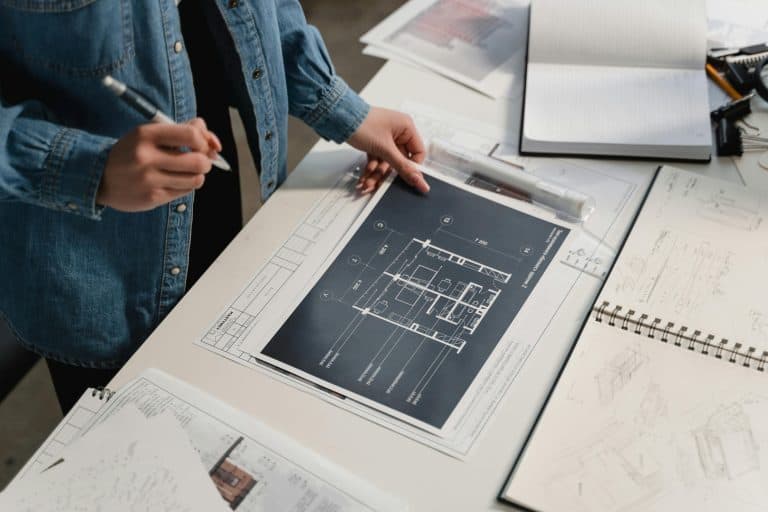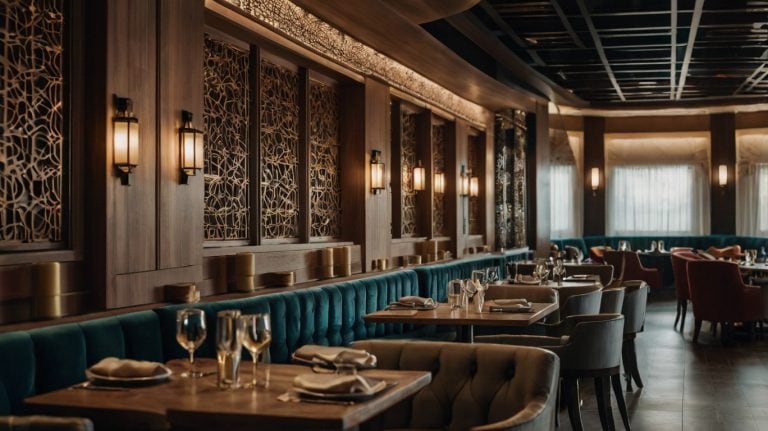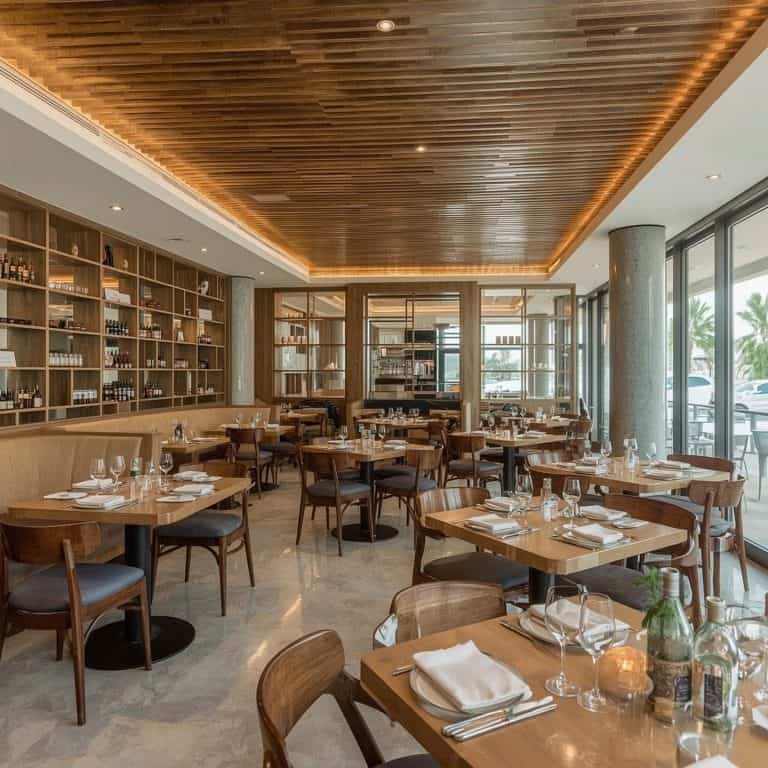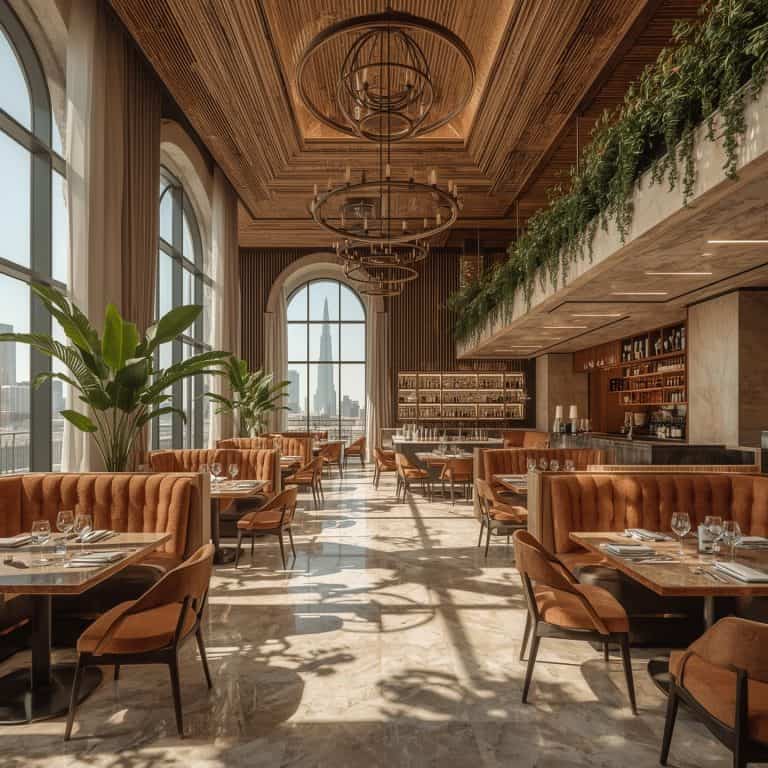5 Proven Ways to Get Fitout Approval in Dubai Quickly

Top 5 Tips to Speed Up Your Fitout Approval in Dubai
How to get fitout approval in Dubai — sounds simple, right? Fill out a form, get a stamp, and you’re set. If only it were that easy. The reality is, you might find yourself drowning in paperwork, chasing approvals from multiple authorities, and decoding building codes that seem written in a foreign language.
Whether you’re planning a luxury retail shop fitout, a cozy café interior, a corporate office renovation, or a healthcare facility fitout in Dubai Healthcare City, you need official approval before a single nail is hammered. That means securing permits and No Objection Certificates (NOCs) from Dubai Municipality, TECOM, Trakhees, DIFC Authority, Downtown Dubai Authority, Dubai Healthcare City Authority (DHCC), and sometimes Dubai Civil Defense — each with its requirements and timelines.
Mastering this process lets you fast-track approvals, avoid expensive redesigns, and ensure your project complies with safety and regulatory standards. The reward? Opening your doors on time, without last-minute surprises that can derail your launch.
This guide provides a step-by-step roadmap to navigate Dubai’s fitout permit system efficiently. You’ll learn how to prepare your documents, liaise with authorities, and handle feedback — all while sidestepping common approval pitfalls.
/
What is Fitout Approval in Dubai?
Fitout approval is the official authorization that allows you to start interior fitout work in commercial, retail, hospitality, healthcare, or office spaces in Dubai. It confirms your design meets building codes, fire safety standards, health regulations, and environmental requirements.
The fitout approval process applies to:
- New commercial fitouts like office interiors, retail shops, restaurants, and healthcare facilities
- Renovations involving mechanical, electrical, and plumbing (MEP) system changes
- Modifications affecting structural elements or fire safety features
Example: A boutique in The Dubai Mall must get approval from mall management and Dubai Municipality before construction begins to ensure all electrical and ventilation plans meet safety standards. Similarly, a clinic in Dubai Healthcare City must comply with DHCC-specific healthcare fitout standards, including strict hygiene and safety requirements.
Why You Need to Know How to Get Fitout Approval in Dubai
Skipping or mishandling fitout approvals can lead to fines, project halts, or damage to your business reputation.
Here’s why it matters:
- Ensures compliance with Dubai Municipality and other regulatory authorities, including healthcare-specific standards in DHCC
- Prevents delays caused by rejected or incomplete permit applications
- Avoids costly redesigns or demolition orders
- Meets mall management and healthcare facility fitout requirements and lease conditions
- Secures Dubai Civil Defense approval for fire safety
- Maintains good relations with landlords by fulfilling contract terms
Understanding the approval process protects your investment and reduces stress.
Step-by-Step Instructions to Get Fitout Approval in Dubai
Getting fitout approval can be complex, but a clear plan helps you avoid pitfalls and secure permits quickly.
Step 1 – Identify the Relevant Approval Authority
Dubai’s fitout approvals are managed by different authorities based on location and project type:
- Dubai Municipality: Covers most city areas such as Business Bay, Dubai Marina, and Al Barsha.
- Dubai Healthcare City Authority (DHCC): Governs fitouts for healthcare facilities, clinics, and hospitals within Dubai Healthcare City free zone. DHCC has strict healthcare compliance standards and approval procedures.
- DIFC Authority: Manages approvals within the Dubai International Financial Centre free zone.
- Dubai Development Authority (DDA): Oversees fitouts in designated zones including Dubai South and Dubai Production City, managing building permits and approvals.
- TECOM Group: Governs technology and media free zones like Dubai Internet City and Dubai Media City.
- Trakhees: Responsible for JAFZA, Dubai Maritime City, Dubai Industrial City, and Port Rashid.
- Mall or Building Management: For fitouts inside malls like The Dubai Mall or Mall of the Emirates, you must also get approval from the mall management.
Example: A new healthcare clinic in Dubai Healthcare City submits fitout plans to DHCC and must follow additional health, safety, and infection control regulations unique to medical environments. Meanwhile, a retail outlet in Dubai Marina Mall must secure approvals from mall management and Dubai Municipality.
Identifying the correct authority upfront prevents wasted time and application errors.
Step 2 – Appoint an Approved Fitout Contractor
Authorities usually require fitouts to be carried out by approved contractors familiar with local regulations, especially for specialized environments like healthcare. Hiring a registered fitout contractor ensures:
- Accurate preparation of architectural and MEP drawings compliant with authority standards, including healthcare-specific requirements for DHCC
- Proper coordination of permits and NOCs
- Faster processing and fewer resubmissions
Example: A healthcare provider in Dubai Healthcare City hired a DHCC-approved contractor experienced with healthcare standards, expediting the approval process significantly.
Step 3 – Prepare Complete Drawings and Documentation
Incomplete applications cause most delays. Your contractor should provide:
- Architectural drawings: Layouts including walls, partitions, doors, and finishes suitable for healthcare or commercial use
- MEP drawings: Mechanical, electrical, plumbing, lighting, and HVAC details meeting healthcare or commercial standards
- Fire safety documentation: Fire alarm layouts, suppression systems, and Civil Defense forms
- Material specifications: Flooring, wall finishes, ceilings, and fixtures designed for compliance, including hygienic materials in healthcare
- Landlord NOC: Usually mandatory before submitting to the authorities
Example: A medical lab in Dubai Healthcare City delayed approval after submitting drawings lacking specific infection control details, requiring resubmission for compliance with DHCC health standards.
Step 4 – Submit the Application and Pay the Fees
Once documents are ready:
- Submit your application via the authority’s online portal (Dubai Municipality e-Services, DHCC portal, DIFC portal, TECOM system, or Trakhees platform)
- Pay all applicable fees promptly to avoid processing delays.
Unpaid fees or incomplete submissions often cause applications to stall.
Step 5 – Respond Quickly to Feedback and Secure Final Approval
Authorities review applications and may request revisions or clarifications.
- Address feedback promptly to keep your application prioritized
- Once all conditions are met, you’ll receive the No Objection Certificate (NOC), allowing work to begin
Example: Opening a medical clinic in Dubai Healthcare City involves identifying the DHCC Authority (Step 1), hiring a healthcare-compliant fitout contractor (Step 2), preparing detailed drawings and landlord NOC (Step 3), submitting your application and fees online (Step 4), then promptly responding to authority feedback (Step 5). Finally, you get your fitout approval and NOC, enabling construction on schedule.
| Step | Activity | Typical Duration | Notes |
| Step 1: Identify Relevant Authority | Confirm governing authority for your location | 1–2 days | Crucial to avoid delays from wrong submissions; includes Dubai Municipality, DHCC, TECOM, DIFC, Downtown, Trakhees, mall management. |
| Step 2: Appoint Approved Contractor | Hire certified fitout contractor | 3–7 days | Approved contractors reduce risk of errors, especially for specialized healthcare projects in DHCC. |
| Step 3: Prepare Drawings & Documentation | Complete architectural, MEP, fire safety docs, landlord NOC | 1–3 weeks | Thorough and accurate submissions prevent back-and-forth and delays. Healthcare fitouts often require extra compliance details. |
| Step 4: Submit Application & Pay Fees | Online portal submission and fee payment | 1–3 days | Authorities include Dubai Municipality, DHCC, TECOM, DIFC, DDA, Trakhees, mall management portals. |
| Step 5: Review & Respond to Feedback | Authority review, revisions, and final NOC issuance | 1–4 weeks | Timely response to feedback accelerates approval. Civil Defense inspections may add time, especially for healthcare. |
| Total Estimated Timeline | From start to final approval | 3–8 weeks | Depends on project complexity, authority, and responsiveness. Healthcare and freezone approvals often on longer side. |
Key Considerations for Successfully Getting Fitout Approval
- Please communicate with your landlord early, as their NOC usually precedes authority submission
- Avoid making design changes during approval to prevent resubmissions and delays
- Schedule Dubai Civil Defense inspections early, especially for healthcare facilities
- Confirm if your project requires approvals from multiple authorities, and plan accordingly
Taking it to the Next Level – How to Speed Up Approvals
- Hire a project manager experienced with Dubai’s healthcare and commercial approval processes
- Use design consultants pre-approved by the relevant authorities, including DHCC
- Pre-book Civil Defense inspections as soon as fitout work begins
Alternatives to the Standard Approval Process
- Serviced offices with pre-approved layouts may only need minimal approvals
- Some malls offer fast-track approval programs for minor refurbishments

Wrapping Up and My Experience With Getting Fitout Approval
Dubai’s fitout approval system can feel overwhelming, but understanding the authorities and process steps makes it manageable. Working in a Dubai interior fitout firm, I’ve seen healthcare and commercial projects approved in as little as two weeks because they strictly followed guidelines, while others dragged on due to minor errors. Follow the proper steps and collaborate with professionals to keep your project on track from day one.
Frequently Asked Questions
1. How long does fitout approval take in Dubai?
Usually 2–4 weeks depending on authority and application completeness.
2. How much do fitout approval fees cost?
Typically AED 1,000–5,000 depending on authority and project size.
3. What documents are needed for fitout approval?
Architectural and MEP drawings, landlord NOC, fire safety approval, and material specs.
4. Who issues fitout permits in Dubai?
Dubai Municipality, TECOM, DIFC Authority, Dubai Development Authority, Trakhees, mall management, and Civil Defense.
5. Is approval needed for minor fitout works?
Yes — even small changes often require permits and NOCs.






